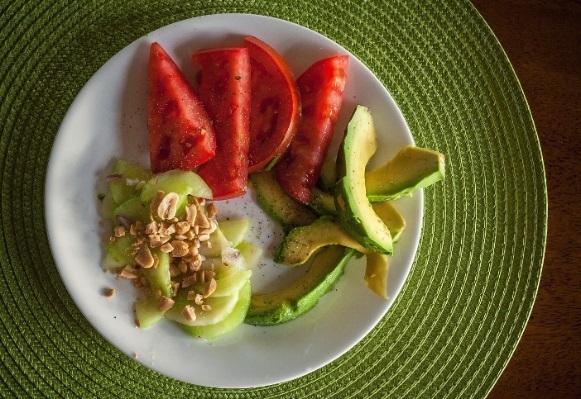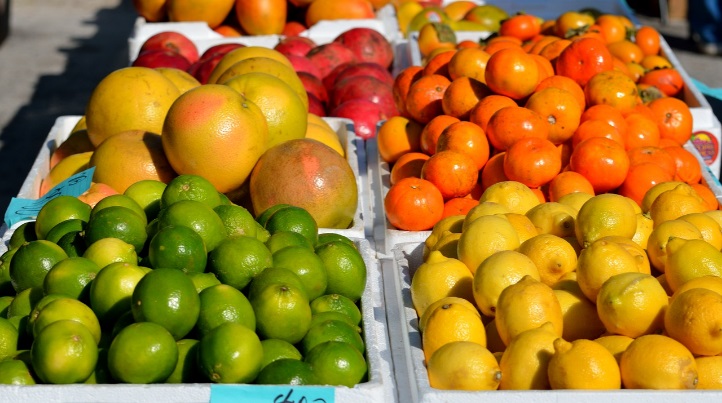
Table of Contents
The Role Of Diet In Healthy Aging. 1
What diet-related diseases am I at risk for as I age?. 1
What are the best food choices to improve aging?. 1
Is diet important for health and vitality in aging?. 2
Why is maintaining a healthy weight important as I get older?. 2
Is portion control important in aging?. 3
What does nutrient dense mean?. 3
What are the best heart health foods?. 3
What are the best fats to support heart health?. 3
What role do omega-3 fatty acids play in my health?. 3
Does diet put women at higher risk for heart disease?. 3
What role do antioxidants play in the aging process?. 3
What foods reduce risks for cancer?. 3
What role does diet play in risks for stroke?. 3
What are key nutrients for the aging woman?. 3
What are key nutrients for the aging man?. 3
I love junk food, am I putting myself at risk?. 3
Is a plant diet good for healthy aging?. 3
Can I reduce wrinkles with a good diet?. 3
What are the best foods for optimal energy in the older years?. 3
Are there are any joint health-friendly foods?. 3
What foods support bone health in women?. 3
What are the best workout fuel foods for ages 50+?. 3
As I get older, I am concerned about my health, should I cut back sugar?. 3
Are there any ways to make vegetables more enjoyable?. 3
What are the best foods to boost my immunity?. 3
Disclaimer: This publication is for informational purposes only and is not intended as medical advice. Medical advice should always be obtained from a qualified medical professional for any health conditions or symptoms associated with them. Every possible effort has been made in preparing and researching this material. We make no warranties with respect to the accuracy, applicability of its contents or any omissions.
The Role Of Diet In Healthy Aging

There is one truth in life, you will eventually age into your golden years. Beyond that, there are no guarantees, but recent studies in nutrition science have shown that diet plays a key role in aging gracefully.
Whether you are looking at the bioactive compounds found in fruits and vegetables that promote healthy aging, flavonoids that reduce risks for oxidative stress or healthy fats that reduce the risk of cardiovascular disease, a healthy diet can have miraculous effects on how well you age and whether you will suffer from and/or die prematurely from chronic disease.
25 FAQ: Diet And Aging
What diet-related diseases am I at risk for as I age?
As you age, many things come into play when determining the risk factors for disease. According to the Center For Science In The Public Interest, the number one factor in determining your risk of death from disease is diet.
Diet can play an important role in the prevention and management of many age-related diseases including but not limited to:

- Heart disease
- Type 2 diabetes
- Obesity
- Stroke
- High blood pressure
- Osteoporosis
- Cancers (cervical, colon, gallbladder, kidney, liver, ovarian, uterine, postmenopausal breast cancer and others not related to smoking)
What are the best food choices to improve aging?
Choosing the best food for improving aging may be a matter of what you consider an improvement in your aging process. While it is true that pomegranates and blueberries contain free radical fighting antioxidants that may help fine lines and smooth your skin that may not be the most important thing for you to consider as you age. The antioxidants contained in these foods can also help fight inflammation throughout the body which is going to be a far more important effect, than fighting wrinkles.
In general, including a wide variety of whole real food (and not processed junk) that provides with you a wide range of nutrients is your smartest choice so you can cover the farthest range of disease preventing and health supporting benefits that sound nutrition provides. At the same time, it is important to limit or avoid junk and processed food that is typically lacking in nutrients, has unnecessary added fats and sugars and excess calories.
Is diet important for health and vitality in aging?
Diet can control many aspects of how you feel and how much energy you have. According to Web M.D., many foods give you a boost in energy and help you feel especially full of vitality even as you age, including nuts, lean meats, salmon, leafy greens, colorful vegetables and foods high in fiber.
This extra boost of energy may not seem very important when you are young, but as you age, it becomes a key ingredient in maintaining a healthy and active lifestyle. Diet is one of the most important factors in maintaining health and vitality as you age.
Why is maintaining a healthy weight important as I get older?
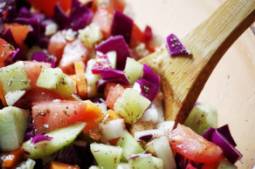
Obesity is currently the number one cause of preventable death in the United States. About 1/3 of all US adults are oversight or obese, these numbers present an epidemic level of the weight problem in America, and further highlight the need for vigilance in diet, and the need for regular exercise.
Obesity is also the culprit in many lifestyle diseases that prematurely kill thousands of people around the world. Overweight and obesity related health problems include coronary heart disease, high blood pressure, stroke, type 2diabetes, joint-related conditions, metabolic syndrome, sleep apnea, and the list goes on. According to The National Heart Lung And Blood Institute, being overweight and obese along with age increases your risks for these diseases.
The last thing you want to do is give yourself a double dose of risk for these preventable and serious conditions. Aging gracefully and living with vitality in your golden years means maintaining a healthy weight to reduce the risks of many preventable diseases and maintaining a high quality of life.
Is portion control important in aging?
Your body needs less food as you age because metabolism begins to naturaly slow as you get older. Most of us miss the memo, which is why we see a 5 to 10% weight gain each year after age 50.
What does nutrient dense mean?
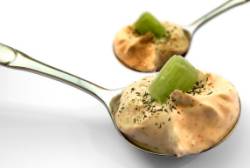
According to the National Institute of Health for Senior Health, nutrient dense foods are foods that have the most nutrients with the least calories. Therefore, a food that is nutrient dense will provide you with a high amount of vitamins, minerals, lean proteins, complex carbohydrates and/or healthy fats with the least amount of calories. For example, broccoli is nutrient dense, as a serving of it is very high in nutrients, but very low in calories, conversely a chocolate chip cookie is high in calories, but has very little nutrients so is not considered to be nutrient dense.
It is important to focus on nutrient dense foods as you age because naturally declines, and every calorie counts, so each food you eat needs to be of value. Additionally, people begin to see a drop in appetite as they get older and this means that they are not getting as many nutrients as they should because they are eating less food.
Eating nutrient dense food means that you are focused on the quality of the food rather than the quantity of the calories. This way you can ensure that your body will have everything it needs to keep functioning properly throughout your senior years.
What are the best heart health foods?
If you’re looking at heart-healthy foods, you’re going to want to incorporate things that reduce inflammation, maintain healthy cholesterol and blood pressure. All of these foods can help you reduce your risk for heart disease and live a longer and healthier life.
WebMD Recommends The Following Heart Healthy Foods:
- Fatty cold-water fish high in omega-3 fatty acids
- Berries that give you fiber and antioxidants
- Low-fat dairy containing calcium and vitamin D
- Whole-grain oats contain high amounts of fiber that have been shown to reduce bad (LDL) cholesterol
- Olive oil instead of butter because it contains heart healthy omega-3 fatty acids
- Dark chocolate for its antioxidants which helps keep bad cholesterol down
What are the best fats to support heart health?
Choosing healthy fats in the right amounts is key for heart health
- Trans fats – 0% or less than 2%
- Saturated Fats – less than 10% of total daily caloric intake
- Monounsaturated Fats – between 15% and 20% of total daily caloric intake
- Polyunsaturated Fats – between 5% and 10% of total daily caloric intake
BEST – UNSATURATED FATS – These include monounsaturated fats and polyunsaturated fats (omega-3 and omega-6 fatty acids). These are your healthiest choices for heart and brain health with highest concentrations of omega-3 fatty acids found in cold-water fish (wild salmon, tuna, herring, and mackerel), nuts, and flaxseed.
In Moderation – Saturated fats – Saturated fats are typically found in dairy and meat products and are solid at room temperature. Saturated fats are associated with an increased risk of heart disease and should be moderated.
Avoid – Trans fats – Trans fats are heart killers and should be avoided at all costs. Most manufacturers have moved away from using trans fats in their foods because of risks associated with heart disease, though many packaged foods still have them. Check labels for hydrogenated oils.
What role do omega-3 fatty acids play in my health?
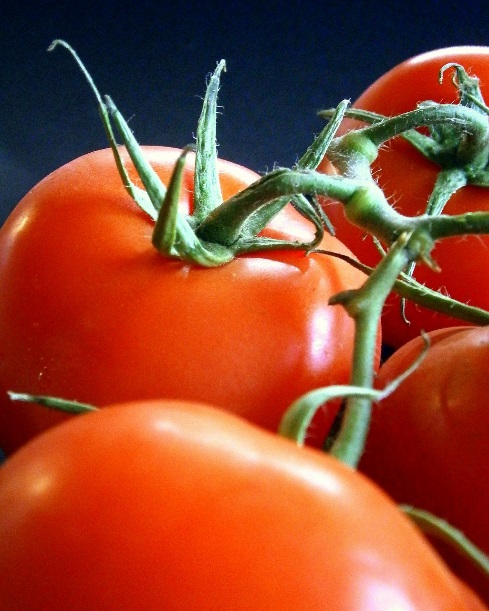
Omega-3’s are monosaturated fats, which are responsible for many heart healthy effects within the body. They reduce inflammation, promote good HDL cholesterol, and keep you healthy as you age. The University of Maryland reports that omega-3 fatty acids can help you reduce the risk and even reverse the effects of damage from the following conditions:
- High cholesterol
- High blood pressure
- Heart disease
- Diabetes
- Rheumatoid arthritis
- Lupus
- Osteoporosis
- Depression and bipolar disorder
- ADHD
- Cognitive decline
- Skin disorders
- IBS
Marine forms of omega-3 fatty acids offer EPA and DHA and are found in oily fish. Plant forms of omega-3 fatty acids offer ALA (alpha-linolenic acid), which is found in plant foods, oils, seeds and nuts. ALA is not nearly as potent as the marine sources of omega-3’s EPA and DHA.
Good sources of EPA and DHA (Experts recommend two servings of fish each week)
- Mackerel
- Wild Caught Salmon
- Anchovies
- Bluefish
- Herring
- Sardines
- Sturgeon
- Lake trout
- Tuna
Good plant sources of ALA
Enjoy these healthy fats in moderation daily
- Walnuts and walnut oil
- Avocados and avocado oil
- Flaxseed and flaxseed oil
- Canola oil
- Soybean oil
Enjoy vegetables liberally
- Brussels sprouts
- Kale
- Mint
- Parsley
- Spinach
- Watercress
Does diet put women at higher risk for heart disease?

According to MedlinePlus, diet is the leading cause of heart disease for both men and women. If you are worried about heart disease, there are a few things that you can do to reduce your risk.
- Eat five servings of fruit and vegetables every day
- Eat whole grains
- Choose lean healthy protein and cold water fish
- Limit high intakes of saturated fats
- Choose heart healthy monosaturated, polyunsaturated fats
- Avoid trans fats completely
- Sodium intake plays a significant role in heart disease, so limiting salt intake and cutting out processed foods that are high in salt can help reduce your risk for heart disease
What role do antioxidants play in the aging process?
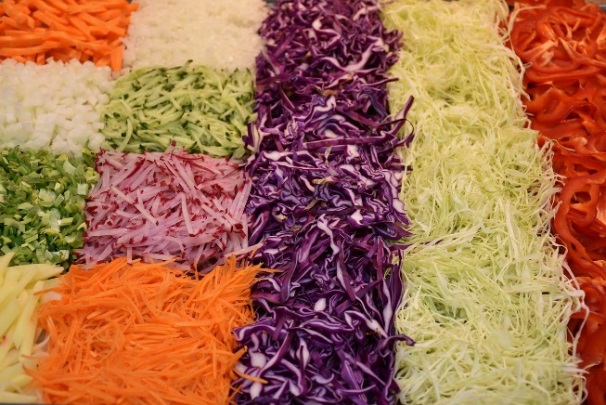
There are many theories about why we age. One of the theories is oxidative stress caused by free radicals. Free radicals are atomic reactions within the mitochondria of cells that cause damage to cells within the body. This is known as oxidative damage. The free radical theory of aging is very technical but to sum it up free radicals cause inflammation and premature and accelerated aging.
It is thought that antioxidants can help reduce free radical damage to the body. Foods high in antioxidants have been shown to reduce risks for many age-related diseases like Alzheimer’s, inflammatory diseases like arthritis, heart disease and others, which may actually be the result of oxidative damage due to free radicals. Live Science notes that our bodies can produce some antioxidants on their own but not in sufficient amounts to keep free radicals in check, making it important to eat foods that contain them, specifically fresh fruits and vegetables in all colors.
What foods reduce risks for cancer?
The causes of many types of cancer are still generally unknown, though science does agree that antioxidants do play a key role in their prevention.
Antioxidants are substances in food that provide protection to cells in the body from damage caused by free radicals that may lead to cancer. Numerous studies have shown that when antioxidants interact with free radicals they have the power to prevent some of this damage and therefore possibly reduce risks for the development of cancer.
WebMD’s List Of Foods Highest In Antioxidants
- Purple, red, and blue grapes
- Small red, kidney and pinto beans
- Wild blueberry
- Cranberries
- Sweet potatoes
- Orange vegetables
- Artichoke (cooked)
- Blackberries
- Prune
- Raspberries
- Strawberries
- Red delicious, granny smith and gala apples
- Pecan
- Sweet cherries
- Black plums
- Russet potato (cooked)
- Black beans (dried)
- Plums
- Coffee is one of the American Institute for Cancer Research’s most recommended foods for fighting cancer
What role does diet play in risks for stroke?

One of the most common age-related diseases and the most devastating is a stroke. Not only can a stroke change the course of your life but it will also effect everyone around you. Knowing the role that diet plays in reducing your risk for stroke can help you avoid this dangerous medical condition.
The Stroke Association recommends that your diet include:
- A variety of fruits and vegetables high in vitamins and minerals and fiber
- Unrefined whole grains
- Fish twice per week
- Avoiding foods high in saturated fat and cholesterol
- Avoiding refined sugars
- Limiting salt intake
What are key nutrients for the aging woman?
Women need to focus on specific nutritional needs as they age because they are at risk for specific age-related diseases, including osteoporosis from which they suffer at higher rates than men do. This means the intake of calcium and vitamin D is of utmost importance to keep bones strong and reduce risks for osteoporosis.
Menopause also presents the need for certain nutrients. While menopausal women need less iron, they do need an increase in vitamin B12 to reduce the risk of becoming anemic. Foods that are high in vitamin B12 include fish, shellfish, fortified cereals, dairy products, and eggs.
Discussing your body’s changes with your physician may help you identify other nutritional deficiencies that you have after menopause.
What are key nutrients for the aging man?
Men and women are biologically different. That means that we need different things for our bodies to function properly. As men age, they need a host of different nutritional elements to help keep them healthy and active.
The Academy of Nutrition and Dietetics recommends the following for men to enjoy a healthy and active senior life.

Potassium: Older men need more potassium and need to decrease their salt intake. Potassium rich foods include fruits like bananas vegetables low-fat or fat-free milk and yogurt.
Omega 3 Fatty Acids: Men need a high amount of omega-3 fatty acids and healthy fats and at the same time they need to reduce their fat intake to 20 to 35% of their diet. Try swapping butter for heart-healthy canola oil or olive oil.
Other nutritional needs may exist, so it is important to talk with your doctor.
I love junk food, am I putting myself at risk?
Eating “bad foods” occasionally and in moderation will not put you at risk for age-related and diet-related diseases (unless you have a pre-existing condition like diabetes or heart disease).
The key is understanding what moderation is, specifically that it is splurging on occasion and in small amounts, allowing you to enjoy the occasional indulgence with little risk to your health.
Alternatively, if you indulge too much or worse yet all the time then yes you are most certainly putting yourself at very high risk for various lifestyle diseases, including heart disease, stroke, obesity, type 2 diabetes, and possibly premature death.
Is a plant diet good for healthy aging?
Plant-based diets are wonderful at any age. They are good for your waistline and provide you with ample vitamins, minerals, and antioxidants. There is only one concern when eating a plant-based diet, and that is that you are getting enough protein. Essential proteins are proteins that cannot be produced by your body. Most complete essential proteins are only found in meat products. While plants may have a portion of a complete protein typically on their own, they do not have the entire protein chain. So when eating a plant-based diet, you need to make sure to eat certain foods.
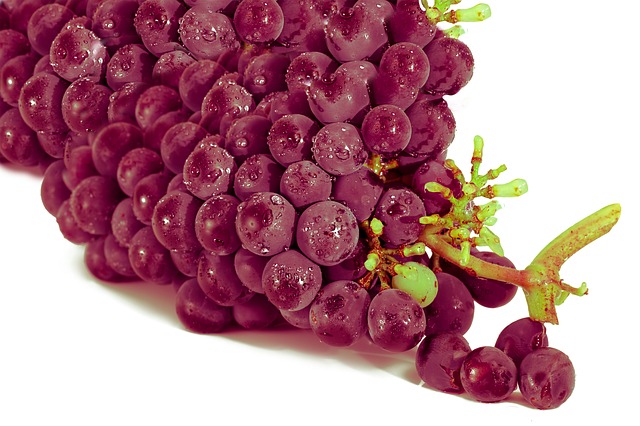
Plant-based complete proteins:
- Quinoa
- Quorn
- Buckwheat
- Soy
Combined Proteins
- Beans and rice
- Ezekiel bread
- Seitan
- Hummus and pita
- Spirulina with grains or nuts
Assuming that you get your dietary allowance of protein, there is no reason not to enjoy a plant-based diet.
Can I reduce wrinkles with a good diet?
WebMD recommends many foods to help you reduce wrinkles. Here is a list of everything they recommend to keep your face looking younger.
- Eat more cold water fish for omega-3 fatty acids
- Eat more fruits and vegetables high in vitamin C that promotes collagen production
- Eat more protein that promotes collagen production
- Drink hot cocoa or eat at least 60% cacao chocolate that’s key antioxidants have anti-aging properties for the skin
If you incorporate these foods into your diet, you can see a reduction in wrinkles because of the added benefits that these foods have in fighting age-related collagen reduction and elasticity loss in the skin.
What are the best foods for optimal energy in the older years?
As you age, your nutritional profile changes. The nutritional needs of a two-year-old are different from that of a 15-year-old. Someone in their 30s is not going to need the same amount of calories as a 15-year-old. An 80-year-old is going to have far different nutritional needs than a 30-year-old.
Key nutritional staples in the older population:
- Lots of fruits and vegetables: These are high-energy foods that offer you key nutrients to help the body function and perform at its best.
- Increase protein intake: 15 to 20% of your calories should come from protein. This will help you repair age related muscle loss.
- Omega-3 fatty acids: getting enough omega-3 fatty acids reduces your risk of heart disease, Alzheimer’s and many other age-related degenerative diseases. Eat oily fish at least twice a week.
- Calcium and vitamin D: these two go hand-in-hand to help maintain strong bones and prevent osteoporosis, but you cannot absorb calcium without vitamin D, so you need to have both in adequate amounts. If you’re not spending time out in the sun to get your vitamin D, you need to take a supplement. Most calcium supplements are paired with vitamin D to help your body absorb the nutrient. Strong bones allow you to be more active in your older years.
Are there are any joint health-friendly foods?
Achy joints just seem to come with the territory of aging, most of this is thanks to the high prevalence of arthritis. Learning how to fight the aches and pains that can come with aging can help improve your quality of life. Joint pain can be debilitating and lead to inactivity, obesity, and has an impact on mental health. Luckily, diet can help improve joint pain. The Arthritis Foundation has listed many foods that will help you fight joint pain and inflammation.
- Fish for omega-3 fatty acids
- Turmeric the spice or in supplement form is an all-natural anti-inflammatory
- Swap butter for cooking oils high in omega-3 fatty acids, such as walnut oil
- Cherries have been shown to reduce the risk of gout and have anti-inflammatory effects, due to their red color
The arthritis foundation has a lot of good information for joint health and mobility. If you’re suffering from joint pain they may be your best resource other than a good healthy diet.
What foods support bone health in women?
Building better bone health as you, age is a top priority. The risk of falls combined with brittle bones caused by osteoporosis can create disaster and lead to hospitalization or worse. Knowing how to support bone health through nutrition can be the best way to prevent broken bones and fractures in your golden years.
The National Osteoporosis Foundation has published a list of wonderful foods that have either calcium or vitamin D to help you build strong, healthy bones. Remember your body has to have both calcium and vitamin D to absorb any amount of calcium. 30 minutes in the sun between the hours of 8 AM and 3 PM will give you enough vitamin D, but most of us wear sunscreen, which blocks out our bodies absorption of vitamin D, so get it from diet with these foods that support bone health.
- Dairy products: calcium and fortified with vitamin D
- Fatty fish like salmon: vitamin D
- Deep green vegetables: calcium
- Fortified foods like breakfast cereals soy milk and juices: calcium and vitamin D

Make sure to ask your doctor about your levels of vitamin D, as blood tests can assess your levels and if you need supplements. For more information, visit The National Osteoporosis Foundation.
What are the best workout fuel foods for ages 50+?

It’s best to stay active and healthy throughout your life to ensure that you lead a high-quality life. Learning how to properly fuel your workouts as you age can help you stay energetic through your workouts. If you’ve stayed active and healthy up to age 50, your nutritional profile pre-workout probably won’t change much. You still want to eat a small amount of carbohydrates 30 minutes to one hour before workout.
All of these are also going to give you bonus effects such as reducing the risk of heart disease and lowering your LDL-cholesterol. Eating after age 50 is all about reducing the risk of age-related disease, even before a workout.
- Whole-Grain Oats
- Bananas
- Apples
- Berries
- Beans
As I get older, I am concerned about my health, should I cut back sugar?
There are multiple reasons to be concerned about sugar intake no matter your age. As you get older age-related disease becomes an increasing concern. Since many of these age-related diseases can be linked to obesity, sugar intake should be monitored closely.
The American Heart Association suggests that men eat no more than 150 calories from added sugar a day and women eat no more than 100 calories from added sugar a day.
Some of the other reasons you will want to limit your intake of sugar is that it has been linked to inflammation in the body, it may cause heart disease, increased risk for type 2 diabetes, and it causes weight gain. Refined sugar is really at best a useless food and at worst a harmful indulgence with zero nutritional value.
Are there any ways to make vegetables more enjoyable?

If you’re not used to eating a vegetable-rich diet, vegetables can taste bland and flavorless. Incorporating vegetables into your diet may be a slow process at first, but there are things that you can do to make them taste better.
- Decrease your sugar and junk intake. High amounts of sugar and fat in the diet can make whole food taste flavorless. As you decrease your intake of junk food, you will begin to appreciate the taste of real food.
- Roast vegetables with herbs and spices. Steamed bland vegetables tend to be tasteless! Try roasting your vegetables with some extra virgin olive oil and your favorite blend of salt-free spices and this should give you great tasting dishes.
- Grill them on the barbecue! Barbecued vegetables are amazing, they are even better if you marinade them first. You can marinade vegetables just as you would marinade meat and it gives them an amazing flavor especially after being cooked over an open flame.
What are the best foods to boost my immunity?

Preventing illness as you age is one of the most important things you can do. Proper nutrition is one of the best ways to boost your immune system and build-up your illness protection response.
Immunity Boosting Foods:
- Yogurt contains probiotics which can help balance natural bacteria in your digestive system to help you fight infection and illness
- Oats and barley contain beta-glucans that give your body antimicrobial and antioxidant capabilitits to help fight off influenza and other commonly contracted illnesses.
- Garlic is one of the best foods for fighting infection and bacteria. Garlic is even known as an anti-parasitic food. To get the immune boosting effective garlic, you need to eat one or two whole cloves of fresh raw garlic daily.
- Tea can help you produce virus-fighting interferon. A Harvard study had people drink 5 cups of black tea every day for two weeks, and they had 10 times more interferon in their blood than those who drink a placebo. It really is amazing that tea can have this much of an effect on your body.
There are even more foods that will help give your body and immune boost, but remember following a healthy diet year-round with a high intake of fresh vegetables is going to be your best bet for leading a healthy life.
sponsored ads
**********************************************************************************
***********************************************************************
